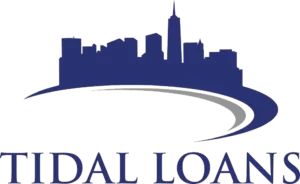Ever felt like getting a loan for commercial property is like navigating a maze? It’s not just about meeting basic requirements. You need to understand different loan types, commercial mortgage rates, and the big differences between commercial and residential loans. This guide will help you understand commercial real estate lending and feel confident in the process.
In today’s competitive real estate market, getting the right commercial real estate loan is key to success. Whether you want to buy an office complex, retail center, or multi-family property, our guide covers it all. From loan types and who can get them to interest rates and fees, we’ve got you covered. Are you ready to improve your chances and get a loan that fits your business? Let’s explore the essential steps to successful commercial property investment.
Key Takeaways
- Commercial real estate loans usually last from five years or less to 20 years.
- Loan-to-value ratios for commercial loans are typically 65% to 80%.
- Interest rates for commercial loans start at 6.9% and can be higher than for homes.
- Commercial loans often require a down payment of at least 25%.
- Lenders want a minimum debt-service coverage ratio (DSCR) of 1.25 for enough cash flow.
- The approval process for commercial loans can be more flexible and faster with non-traditional lenders.
- Commercial real estate loans come with extra fees, like appraisal, legal, and loan application fees.
Understanding Commercial Real Estate Loans
Commercial real estate loans help investors buy income-generating properties. They are key for purchasing, building, fixing, or refinancing properties. This makes them a vital part of their financial plans.
What is a Commercial Real Estate Loan?
A commercial real estate loan is a mortgage for commercial properties. It’s different from home loans because it deals with bigger amounts and longer terms. It’s for properties that make money, like office buildings or warehouses.
Types and Uses
There are many types of commercial property loans, each for different needs. Here are some common ones:
- Bridge Loans: Short-term loans, 1 to 3 years, with rates from 6% to 12%. Great for quick funding needs.
- SBA 7(a) Loans: Can finance up to 100% of a property’s value. Requires a 10% down payment. Good for small businesses.
- Hard Money Loans: For high-risk properties, like those in foreclosure. Rates are 10% to over 20%.
- Conventional Loans: From banks, need a 670+ credit score and about 25% down. Rates are 3% to 20%.
- SBA 504 Loans: Up to 90% of a property’s value. Rates are 3.5% to 5%. Best for long-term investments.
- Mezzanine Loans: Rates from 9% to 16%. Terms up to 5 years. Good for buying or developing properties.
Commercial property loans are flexible, fitting many investment plans. Choosing the right loan can improve flexibility and increase returns. With loan amounts from $2,000 to $500,000, knowing each type well is crucial.
Types of Commercial Property Loans
The world of commercial property loans is full of choices. Each option meets different needs. Knowing what’s out there helps you pick the right loan for your property.
Conventional Loans
Conventional loans come from banks, credit unions, and mortgage companies. They don’t have government backing. You usually need a 20% down payment and good credit.
These loans last from five to 30 years. Interest rates can be as low as 3 percent.
Commercial Bridge Loans
Commercial bridge loans are for quick cash needs. They’re short-term and often interest-only. They help with fast renovations or new projects.
SBA Loans
SBA loans help businesses buy properties for their operations. There are SBA 7(a) and SBA 504 loans. SBA 7(a) loans can go up to $5 million with terms up to 25 years.
SBA 504 loans also offer up to $5 million. They have good terms for small businesses, making buying property easier.
Hard Money Loans
Hard money loans are for quick fixes and flips. Private lenders offer them. They finance up to 70% and have flexible terms.
Interest rates are high because of the risk. But, they’re great for urgent needs.
Choosing the right loan depends on your situation and investment. Whether it’s conventional, bridge, SBA, or hard money, knowing the pros and cons helps you decide.
Key Differences Between Commercial and Residential Loans
Commercial and residential loans differ in key ways that affect borrowers. These differences include loan eligibility, repayment schedules, and loan-to-value ratios. Let’s explore these aspects in more detail.
Eligibility Criteria
Commercial loans have stricter eligibility criteria. Lenders look at strong financials and management experience. They also check if the property is viable.
Residential loans, on the other hand, focus on the borrower’s personal finances. They require pay stubs, tax returns, and other financial documents. It’s worth noting that individuals can only have ten residential loans. For more properties, they might need commercial financing.
Loan Repayment Schedules
Commercial loans have shorter repayment periods than residential loans. Residential mortgages can last up to 30 years. Commercial loans, however, usually last between 1 and 5 years, sometimes up to 15 or 30 years.
This means commercial loans have higher monthly payments. But, it also reduces lenders’ risks. Commercial loans often have prepayment penalties to prevent early payoffs.
Loan-to-Value Ratios
Commercial loans require larger down payments due to lower loan-to-value ratios. Residential loans usually have an LTV of 80%. Commercial properties might see ratios around 65% or lower.
This lower LTV reflects the higher risk of commercial properties. They are more susceptible to economic changes that affect vacancy rates and income.
Commercial Mortgage Rates and Fees
It’s key to know about commercial mortgage rates and commercial loan fees when investing in commercial real estate. These costs can greatly impact the loan’s total price and if it’s even possible. The U.S. commercial property price index is at 185.62, showing growth due to the economy and rising interest rates. Also, office space in California costs an average of $481.95 per square foot.
Interest Rates
Commercial mortgage rates are usually higher than home loans because commercial properties are riskier. As of October 7th, 2024, CA commercial mortgage rates start at 4.89%. Commercial loans are often fixed for 5, 7, or 10 years, then have a 25-30 year amortization schedule. This leads to higher costs over time compared to home loans.
Upfront and Recurring Fees
Expect to pay various upfront costs like appraisal and legal fees, and origination fees when getting a commercial loan. You’ll also face recurring fees like loan servicing fees and sometimes prepayment penalties. For example, Select Commercial may charge prepayment penalties to protect their expected returns. Construction costs have gone up about 25% in the last decade because of higher labor and material prices. These increases also raise the fees for commercial loans.
How to Get a Loan for Commercial Property
Getting a commercial loan for your business needs a good understanding of the process. You should look at the different commercial property investment loans out there. These include term loans and lines of credit, each with its own terms and conditions.
Choosing the right lender is key. Look at interest rates, terms, and fees from banks and private credit firms. This helps you find the best deal for your $2 million loan.
- Maintaining a high credit score (preferably above 700)
- Providing detailed and accurate business financials
- Offering substantial collateral to secure the loan
Understanding SBA loans can also help. The Small Business Administration (SBA) offers 7(a) and 504 loan programs. These have good terms, but the application process is long and requires lots of paperwork.
Interest rates for $2 million commercial loans vary. They depend on the loan type, your credit, and market conditions. SBA 7(a) loan rates are between 7% and 9.5%. CDC/SBA 504 loans start at 5% fixed rates. Repayment terms range from 5 to 25 years, based on the lender and loan structure.
To increase your chances of approval, show strong business performance and a clear plan for the funds. Also, having a good relationship with a reputable lender, like Tidal Loans LLC, can help a lot.
Understanding Commercial Loan Requirements
Getting a commercial real estate loan means you must meet certain requirements. These include providing financial documents, having a good credit score, and showing you know how to invest.
Financial Documentation
When you apply for a commercial loan, you need to give detailed financial documents. Lenders want to see your income statements, tax returns, and balance sheets. They also look at corporate documents and asset statements.
These documents help show your financial health and stability. Keeping your records accurate is key to a strong application. For example, you usually need a debt service coverage ratio (DSCR) of 1.25 or more.
Credit History
Your credit history is also very important. Lenders check it to see if you’re a reliable borrower. A good credit score can help you get better loan terms.
For instance, the FICO Small Business Scoring Service looks for a minimum score of 155 for SBA 7(a) loans. Your credit score also affects the loan-to-value ratio (LTV), which is usually between 65% and 80%.
Investment Experience
Showing you have investment experience is key. Lenders want to know you can manage commercial properties well. This experience proves you’re ready for the challenge.
Whether you’ve worked with hard money loans or traditional bank loans, sharing your investment history can help. It makes your loan application stronger.
The Role of Commercial Property Appraisal
Knowing about commercial property appraisal is key for getting a commercial real estate loan. Lenders check the property’s value through appraisals. This affects whether they approve the loan.
What to Expect During an Appraisal
At a commercial property appraisal, you’ll see a detailed check. The appraiser looks at the property’s state, who’s renting it, and its earning power. They consider recent sales, local market trends, and the property’s condition to figure out its worth.
Appraisers use different methods, like the Cost, Income, and Market Approaches. They might spend a few hours inspecting and then weeks analyzing documents. Knowing this helps everyone make smart choices based on the property’s true value.
Importance of Appraisals in Loan Approval
The property appraisal importance in getting a loan is huge. Appraisals help lenders figure out the loan-to-value ratio. This shows the risk of lending against the property’s value. A good appraisal means the loan amount matches the property’s worth.
Appraisals cost between $800 and $5,000, as Colliers notes. They protect everyone by making sure prices are fair. They help buyers not overpay, sellers get a good deal, and lenders feel secure. Picking the right appraisal report can greatly affect the loan’s terms.
Commercial Property Down Payments
When you get a commercial loan, the commercial property down payment is key. The down payment for commercial properties is usually much higher than for homes. This is because of the *loan-to-value (LTV)* ratios lenders use.
The down payment can be between 10% and 30% of the property’s value. For example, a $550,000 property might need a $137,000 down payment.
Loans for commercial properties vary in down payment needs. SBA loans, like the SBA 7(a) or SBA 504, have lower down payments, starting at 10%. This is good for small businesses looking to save money.
But, bigger properties like industrial buildings often need more down payments. This is because they are seen as riskier.
Commercial property loans have higher LTV ratios, from 60% to 85%. A lower LTV ratio means better financing rates and terms. Putting down more than the minimum can also save money on interest and improve cash flow.
Also, different commercial loans have their own rules for down payments. This depends on the loan type, amount, and the borrower’s financial situation. For instance, some SBA programs don’t need a down payment but have specific rules. Business lines of credit also offer flexibility, requiring collateral but only charging interest on used funds.
To learn more about financing options and improve your credit before buying commercial real estate, check out this resource on Airbnb property financing. It offers insights into location, credit score needs, and other financial details important for getting a commercial loan.
Using Commercial Loan Calculators
Commercial loan calculators are key tools for investors. They help figure out loan costs and payment plans. These tools make financial planning and budgeting for commercial property easier.
Benefits of Loan Calculators
Loan calculators give quick estimates of monthly payments. This helps understand interest and how payments are spread out. They also break down repayment plans, which is crucial for managing investments.
These tools let investors see how different loans work. This is vital for making smart choices. Accurate cost forecasts and planning are huge advantages.
How to Use a Loan Calculator Effectively
To get the most from loan calculator benefits, enter the right information. This includes the loan amount, term, and interest rate. This way, you can see realistic payment plans.
For example, knowing how loan terms affect costs is important. Interest rates, from 3% to 15%, also play a big role. Here’s how to use loan calculators well:
- Enter Accurate Information: Make sure loan amount and interest rates are correct.
- Compare Scenarios: Look at different loan terms and rates to see their effects.
- Evaluate Monthly Payments: See how monthly payments change with different scenarios.
By using these calculators, investors can make better choices. They can match their loan plans with their financial goals.
Strategies for Successful Commercial Property Investment Loans
Starting a commercial property investment needs careful planning for success. It’s key to use commercial property investment strategies well. This ensures your loan matches your investment goals.
Aligning Loans with Investment Goals
Your goals shape your commercial property investment strategies. For quick profits, choose loans with short terms and good prepayment terms. This avoids big penalties. For holding properties long-term, loans with stable rates and easy payments are better.
Think about these points:
- Interest rates on commercial real estate loans range from 5% to 30%, based on the loan and your business.
- SBA 504 loans have rates between 5% and 7%, which is competitive.
- Commercial construction loans are for new buildings or big renovations, fitting long-term goals.
Loan-to-value (LTV) ratios are between 65% and 85%. Matching these ratios with your plan helps manage your finances better.
Choosing the Right Lender
Finding the right lender is also crucial. They affect your loan’s flexibility and terms. Look for lenders known for good commercial real estate loans and rates. For example:
- Bank of America starts rates at 6.25%.
- U.S. Bank offers fixed and variable rates, great for different strategies.
- SBA 7(a) loans, up to 15%, support big property investments.
When picking a lender, consider their local market knowledge and loan success history. Lenders like Tidal Loans LLC are known for their tailored solutions. Look at their products, rates, and reputation to help your investment grow.
In summary, matching your commercial property investment strategies with the right loan and lender is smart. Carefully choose lenders based on their offerings and experience. This leads to getting good commercial property loans.
Weighing the Benefits and Drawbacks of Commercial Loans
As an investor, it’s key to know the pros and cons of commercial loans before you decide. These loans differ from home mortgages in many ways. They offer special benefits but also have big downsides.
Advantages of Commercial Loans
Commercial loans let you borrow more money, perfect for big real estate deals. This means you can get the funds needed to open new places, buy equipment, or stock up on inventory. They also come with features that fit business needs, like different interest rates and fees.
Getting a lot of capital is a big plus of commercial loans.
- High lending limits for significant investments
- Tailored features for business requirements
- Flexibility in interest rates and fee structures
Potential Risks and Considerations
But, there are risks to think about too. Commercial loans usually have higher interest rates and fees than home loans. You might have to pay back the loan over 5 to 20 years, and you’ll need to put down 20% to 40% of the property’s value.
The paperwork can be a lot, needing lots of financial documents like tax returns and financial statements.
- Higher interest rates and fees
- Stringent repayment schedules
- Significant down payment obligations
- Extensive paperwork and financial documentation
There are also rules about paying off the loan early, like penalty fees and lockout periods. This shows why you need to carefully check your finances before getting a commercial loan.
Conclusion
Getting commercial property financing can seem tough, but it’s doable with the right info. You need to know about different loans like conventional, SBA, and bridge loans. Each has its own rules and requirements.
Loans usually cover 75% to 80% of the property’s value. You might need a high credit score and a big down payment. These details might seem complex, but they’re not impossible to handle.
Investing in commercial real estate comes with risks and benefits. It’s important to understand these, like loan terms lasting 5 to 20 years. You might face balloon payments or higher interest rates with certain loans.
Using loan calculators can help a lot. They make sure your financing fits your investment plans. This way, you can make smart choices.
Having experienced lenders, like Tidal Loans LLC, on your side is crucial. They know all about commercial property financing. Working with them helps you navigate the complex world of real estate.
For personalized advice and questions, contact Tidal Loans LLC. Call them at 832-757-1262 or email at info@tidalloans.com.


